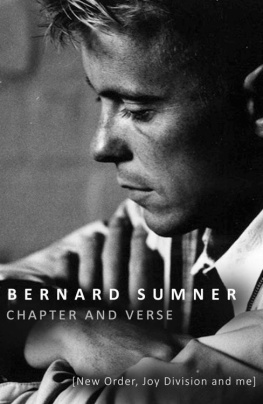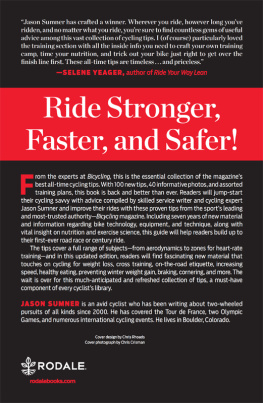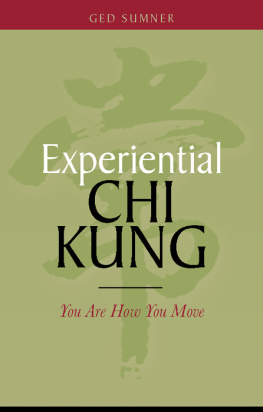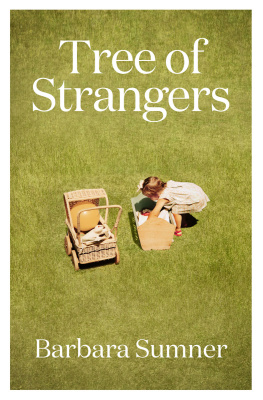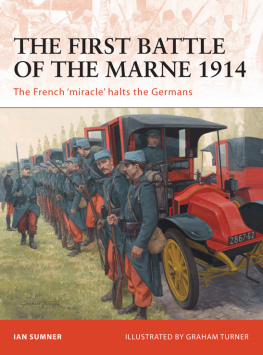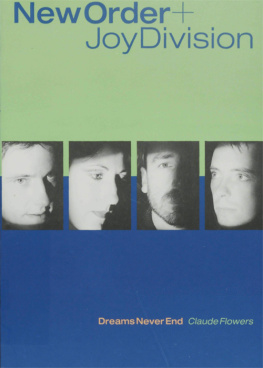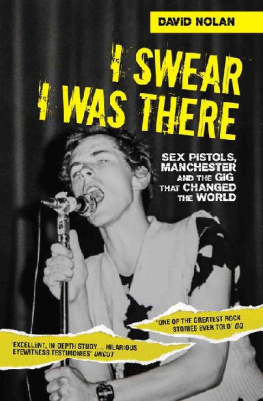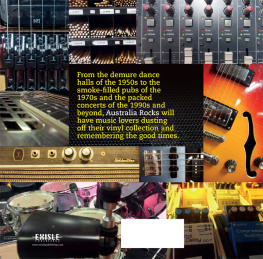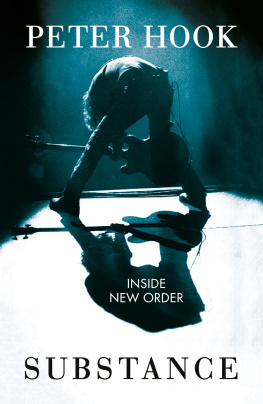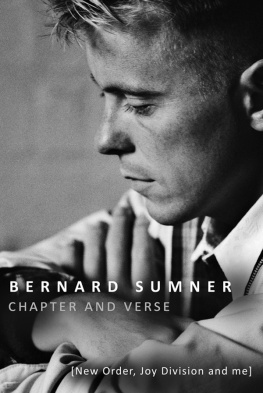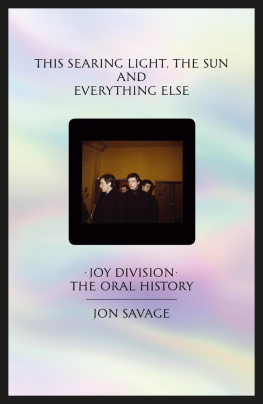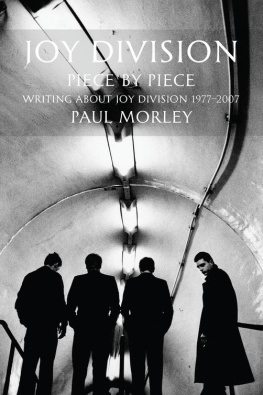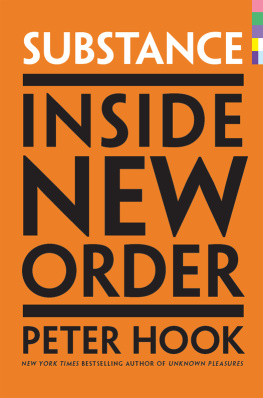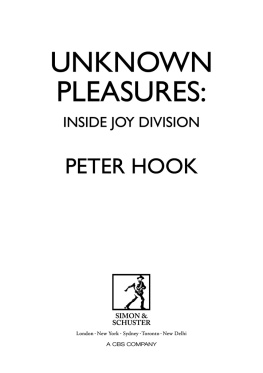About the Book
Founding member and guitarist of Joy Division, lead singer of New Order and an integral part of the Manchester music scene since the late 1970s, Bernard Sumner has over the years been famously reluctant to speak out. Until now... In Chapter and Verse, Bernard tells the definitive story behind two of the most influential bands of all time.
The book includes a vivid and illuminating account of Bernards Salford childhood, the inception and demise of Joy Division, the bands enormous critical and popular success, and the subsequent tragic death of Ian Curtis. Bernard describes the formation of New Order, and takes us behind the scenes at the birth of classics from both bands such as Love Will Tear Us Apart, Atmosphere, Blue Monday and World In Motion. And he gives his first-hand account of the ecstasy and the agony of the Haienda days.
Sometimes moving, often hilarious and occasionally out of control, this is a tale populated by some of the most colourful and creative characters in music history, such as Ian Curtis, Tony Wilson, Rob Gretton and Martin Hannett. Some of these events have appeared before in film and book form. But now, for the first time, Bernard Sumner tells the whole story the Haienda, Joy Division and New Order in one book, Chapter and Verse.
Contents

My family
The band
Loyal friends, collaborators
and all those who have passed away
Ian, Martin, Rob, Tony
Acknowledgements
Charlie Connelly
Doug Young
Kevin Conroy Scott
Lizzy Kremer
Alison Barrow
Jack Delaney
Rebecca Boulton and Andy Robinson
Time
Time is a curious thing. When you have it before you, its something you take for granted and it moves slowly. Then, as you get older, it accelerates. When I look back, it seems such a long distance travelled, so long ago, so dream-like.
January 1956 on a cold grey northern winters day I was born in a Manchester hospital called Crumpsall. I can only imagine what Manchester was like in the fifties: black and white, grainy, weird-looking cars and black vans with austere headlamps and radiator grilles, fog, the Midland Hotel, the Central Library, the River Irwell, the bad food, the rain. So I moved to Salford, five miles away.
I lived at 11 Alfred Street, Lower Broughton, Salford 7, red front door, a terraced house in the middle of a community of mostly decent working-class people. My family consisted of my mother, Laura, my grandmother, Laura, and my grandfather, John, and they were all called Sumner.
Of course, I dont remember much about those so-called formative years, but please see the embarrassing photographs. My earliest memory is of sitting on a brown couch playing with a red and cream plastic guitar that said Teen Time on it.
So thats how it started.
Preface
As I write this, Im preparing to travel to South America with New Order for gigs in Chile, Argentina, Uruguay and Brazil. Weve never particularly promoted ourselves in those countries in fact, weve never particularly promoted ourselves anywhere outside the UK to any great extent yet well be playing to packed houses in cities about as far in every sense from our Manchester origins as you could possibly imagine.
Joy Division and New Order are international phenomena. Our music has permeated the globe and Im not sure how or why this has happened: neither group could be described as a conventional pop band churning out hits and earning lots of Top Forty radio airplay. Yet for some reason weve built up a vast and loyal global following that shows no sign of diminishing any time soon, even in the most unlikely settings: only recently, I was at home watching news footage from the Middle East of people running for shelter from a missile attack when a teenage girl ran past the camera wearing an Unknown Pleasures T-shirt.
The longevity of the music is something that consistently astounds me. Joy Division started in 1977, and here we are, more than three decades later, as popular as weve ever been, winning over whole new generations and finding new audiences. On our recent tour I asked some fans in their teens how they discovered New Order. Usually their big brother or sister had introduced them to us, or theyd raided their parents record collections and liked what they heard, which is fantastic to hear.
All this makes these exciting times for New Order. The last few years have proved to be among the busiest and most successful and in many ways the most enjoyable in the three-decade history of the band. What began as a couple of charity gigs in 2011 grew into a clutch of festival dates, then, almost before we knew it, we were on a full-blown world tour that lasted several months and covered several continents. Since then its been more of the same.
The tour re-emphasized for me the very special connection that exists between the fans and the band when it comes to Joy Division and New Order. Everywhere I go I meet a whole range of people, young and old, who approach me with albums to sign and tell me how much our music means to them, how its been the soundtrack to their lives. Often they ask if they can have a photograph taken: they stand beside me holding out their iPhone to take the picture, and their hand is shaking because they feel so passionate about the music theyre struggling to hold the camera still. Its an amazing feeling to think that Ive been a part of something thats had that kind of impact on somebodys life, whether theyre from the suburbs of Manchester or the suburbs of Lima, Auckland, Tokyo, Berlin or Chicago.
New Order fans are fiercely loyal. They dont just like New Order, they feel a profound connection between the band, the music and themselves. It goes way beyond simply liking a catchy tune, its something deeply personal: its not just a case of playing our music while theyre washing the pots or catching us occasionally on the radio these are people whose lives have been changed, whove found some kind of solace or inspiration in what weve done.
The main factor in this is of course the music itself: people find something in it that resonates with their own lives on a very profound level, and Ive always found it humbling to hear people talking about what our music means to them.
That, however, has always been rather a one-way conversation. Until now.
I am by nature a very private person and have always preferred to let the music speak for me. Over the years, Ive given countless interviews about the bands Ive been in and the music Ive made, but never before have I linked any of it to my personal life. My life in music has been shaped entirely by the person I am and the things that have happened to me. Our music has never been about, for example, being a virtuoso on a particular instrument, its entirely the product of our personalities and the sum of all our experiences.
Yet while the private aspects of my life have been vital to my creativity, Ive always felt very uncomfortable talking about them. I constructed a barrier between the private and public sides of me at an early stage that I have rarely, if ever, opened.
Since we started touring again, however, Ive seen the reactions of people to our shows and heard what our music means to them, and its made me think. Ive realized that I owe people a look behind the scenes of my own story, because I dont think anyone can have a true understanding of the music without an insight into where it came from. Life shapes you, and what life does to you shapes your art. Its time for me to fill in the blanks: maybe then people might discern why the music we make affects them so deeply.

